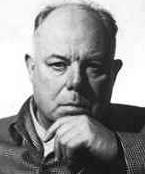Post by criterionmaster on Jan 1, 2007 18:30:50 GMT -5

"Renoir's ouevre stands as a monument and a model of cinematography. By summoning the conditions of illusion and artifice of film, it rises out of the massive production of poetic realism of the 1930s in France. He develops a style that is the very tenor of a vehicle studying social contradiction. The films implicitly theorize the limits that cinema confronts in any narrative or documentary depiction of our world." - Tom Conley (International Dictionary of Films and Filmmakers, 1991)
"Renoir asks us to see the variety and muddle of life without settling for one interpretation. He is the greatest of all directors; he justifies cinema. But he shrugs off the weight of "masterpieces" or "definitive statements". The impossibility of grasping final solutions or perfect works is his "rule"." - David Thomson (The New Biographical Dictionary of Film, 2002)
"His signature is discernible in the generous, unsentimental humanity, the assured evocation of milieu, an awareness of the transience of life and love, and a subtle realism whose deceptive simplicity is derived from unobtrusive artifice: deep focus, long takes, complex camera movements, elegant framing, and a wealth of telling incidental detail...He was unquestionably a master of cinema; the apparent effortlessness of his art only confirms his genius." - Geoff Andrew (The Director's Vision, 1999)
"The world's greatest film-maker." - François Truffaut
"One of the great directors, Renoir combined a humanist view of the world with the use of deep focus shots, which enabled everything in a frame to be seen with clarity, thus enlarging the possibilities for action in each shot. This gave his films a richness of emotion and style few can match." - William R. Meyer (The Film Buff's Catalog, 1978)
TSPDT Says:
Must-See Films: The Crime of Monsieur Lange (1936), La Bete Humaine (1938), Rules of the Game (1939)
Highly Recommended: Une Partie Campagne (1936)
Recommended: La Chienne (1931), Boudu Saved from Drowning (1932), La Grande Illusion (1937), This Land is Mine (1943), The Southerner (1945), The River (1951), The Golden Coach (1952), French Cancan (1955), The Testament of Dr. Cordelier (1959)






